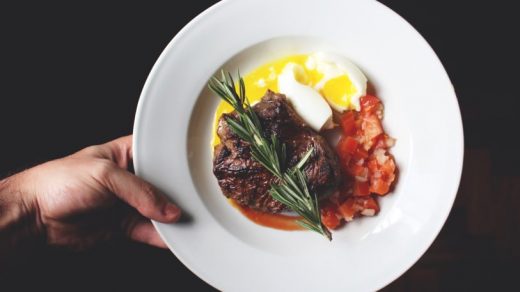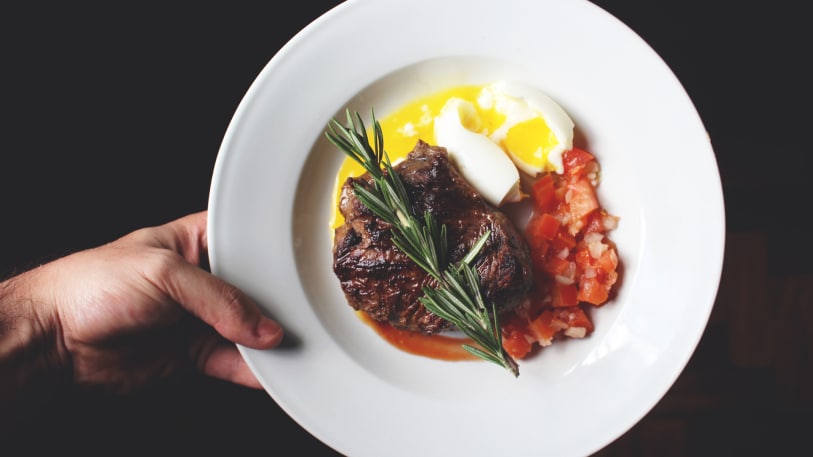Meal Kits May Be Winning Us Over—And Unilever Wants A Seat At The Table
Unilever Ventures is diving into meal kits with an investment in Sun Basket, a do-it-yourself meal-subscription service focused on organic foods and “clean” eating. The $9.2 million investment comes as Blue Apron, the country’s biggest meal-kit operator, is rumored to be exploring an IPO, prompting big questions from analysts and investors about the future viability of this burgeoning but still-unproven industry.
“There is already compelling evidence that these services are changing consumer behavior, with loyal subscribers spending as much as 13% of their food purchases on meal-kit services,” the report notes. (Disclosure: Morningstar’s founder is Joe Mansueto; Fast Company’s parent company is Mansueto Ventures.) Furthermore, these boxed grocery collections represent a new channel for smart consumer packaged-goods companies like Unilever, which owns hundreds of brands including many recognizable names like Hellmann’s, Lipton, and Ben & Jerry’s. Unilever has already shown its eagerness to capitalize on new consumer habits with its $1 billion acquisition last year of Dollar Shave Club.
Sun Basket could give Unilever a direct pathway from its distribution centers to consumer’s homes. Rather than posing a threat to grocery or goods manufacturers, meal kits might prove to be a boon. The biggest example of how brands are getting into the space is through meal-kit-building services like Chef’d’s. The company has boxed up individual kits for partners ranging from the American Diabetes Association to Runner’s World. But it’s not just white labeling that allows grocers or CPGs a new channel to get to consumers—it’s through marketing. Meal kits can include relevant promotional products (a breakfast bar, a single serving of coffee, snack-size packaged almonds) based on consumer data.
Sun Basket CEO Adam Zbar sees data as his company’s big advantage over traditional grocery. He says based on a customer’s choices (how easy or difficult they like their meal prep to be, what foods constitute favorites or alternatively requirements, etc.), his company can serve them unique products. For now, those products are mostly recipes, but eventually those customer profiles might be used to suggest or promote other products. As an example, Unilever has tested Instacart as a method for sending out free samples to customers. (Unilever Ventures also invested in Instacart.)
Biggest Barrier To Success
While there appears to be lots of opportunity in the growing meal-kit industry, there are many barriers to success. Last year, research firm 1010 Data revealed that customers drop off after the first week of trying meal kits from Blue Apron, HelloFresh, and Plated. The report from Morningstar estimates that, a year later, only 8% to 18% customers remain.
Meal kits also have high marketing costs, with companies spending between $30 to $80 per customer, according to the same report. “If we shut down our marketing, we’d be profitable instantly,” Zbar acknowledges.
Then there is the issue of saturation: Well over 25 meal-kit companies are vying for their place at your dinner table. They will all tell you that the grocery business is a $650 billion dollar market, meaning there’s plenty to go around. But more than likely, a period of consolidation is coming.
In the niche healthy-eating segment, though, there are substantially fewer players. Those include Green Chef, Terra’s Kitchen, Purple Carrot, and Sakara. But Zbar argues his company’s focus on specific dietary regimens is helping it to develop a loyal customer base. “Our retention is over double when we focus on on a need, and you’ll see that gets even stronger as it moves from a diet to an issue like diabetes,” he says, noting that roughly 50% of Sun Basket’s customer base either require a paleo or gluten-free package.
The Amazon Question
In a room crowded with elephants, Amazon is perhaps the biggest. With its scale and huge distribution footprint, Amazon could be a substantial player in the meal-kit space. The Everything Store currently offers meals concepted by Martha Stewart and Marley Spoon on Amazon Fresh. But its partnership approach could actually be good for meal kits. “If we assume that just 5% of U.S. Prime members become regular users of Amazon’s meal-kit service offering, the U.S. meal-kit delivery services industry could grow to $10 billion by 2021, with roughly $3 billion coming directly from Amazon,” Morningstar notes.
So if meal kits can strike deals with Amazon as a distribution partner, the e-commerce giant could be a great marketing device, putting more meal kits in front of more people.
The packaged-goods giant’s new investment in Sun Basket shows the allure of niche food markets.
Unilever Ventures is diving into meal kits with an investment in Sun Basket, a do-it-yourself meal-subscription service focused on organic foods and “clean” eating. The $ 9.2 million investment comes as Blue Apron, the country’s biggest meal-kit operator, is rumored to be exploring an IPO, prompting big questions from analysts and investors about the future viability of this burgeoning but still-unproven industry.
Fast Company , Read Full Story
(60)



